Introduction to the Library of Celsus
The Library of Celsus in ancient Ephesus, Türkiye, is an enduring symbol of Roman architectural and intellectual achievement. Built between 110 and 114 AD, this grand library was commissioned by Gaius Julius Aquila in honor of his father, Tiberius Julius Celsus Polemaeanus, a respected governor and consul of Ephesus. Uniquely, Celsus was interred in a sarcophagus directly beneath the library, making the building both a monumental tomb and a temple of knowledge.
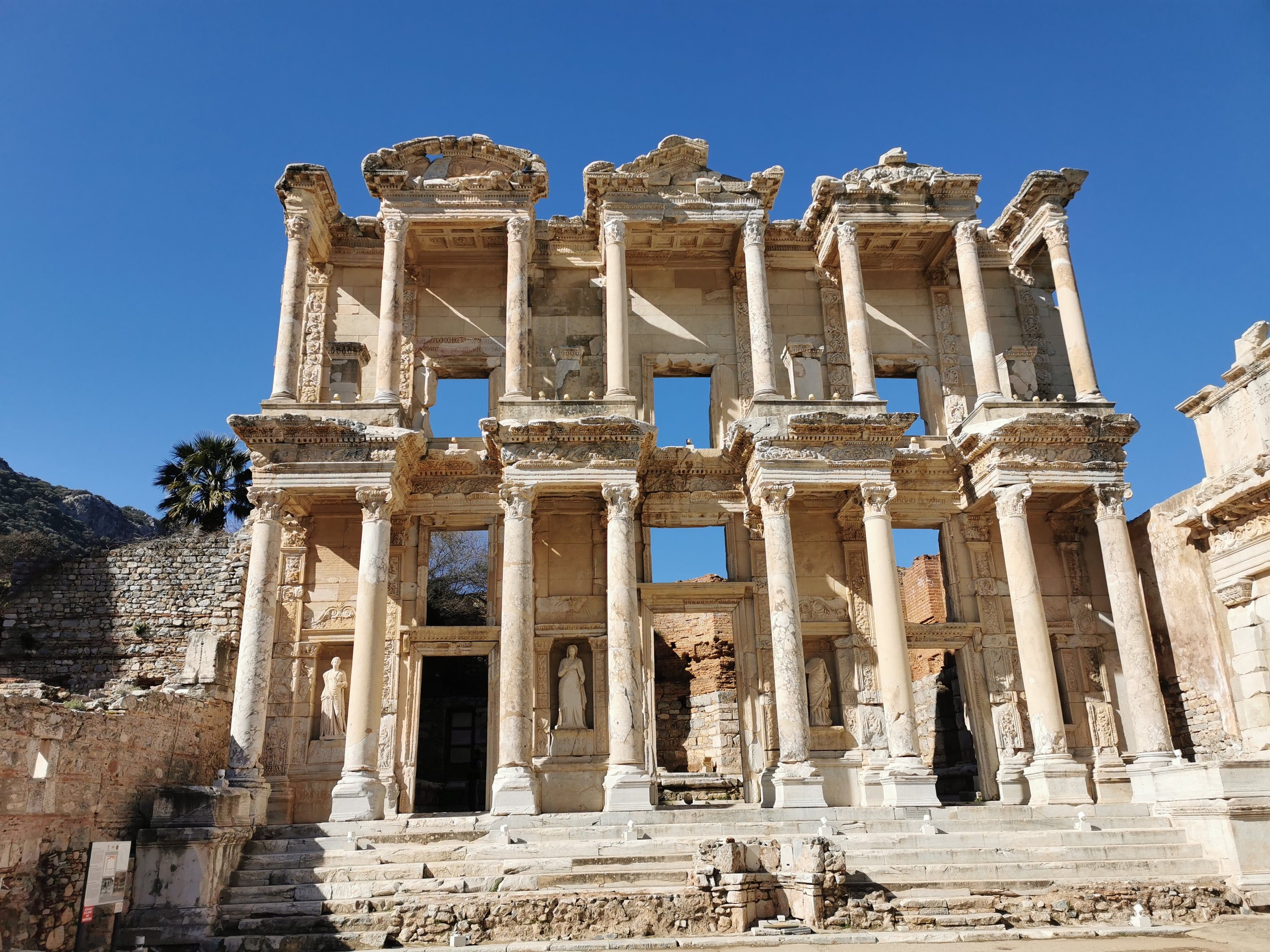
A Repository of Knowledge
At its peak, the Library of Celsus held over 12,000 scrolls, establishing it as the third-largest library in the Roman Empire, behind only the illustrious libraries of Alexandria and Pergamum. This vast collection made the library a central hub of knowledge and scholarship in Ephesus, drawing scholars, officials, and citizens alike to its hallowed halls.
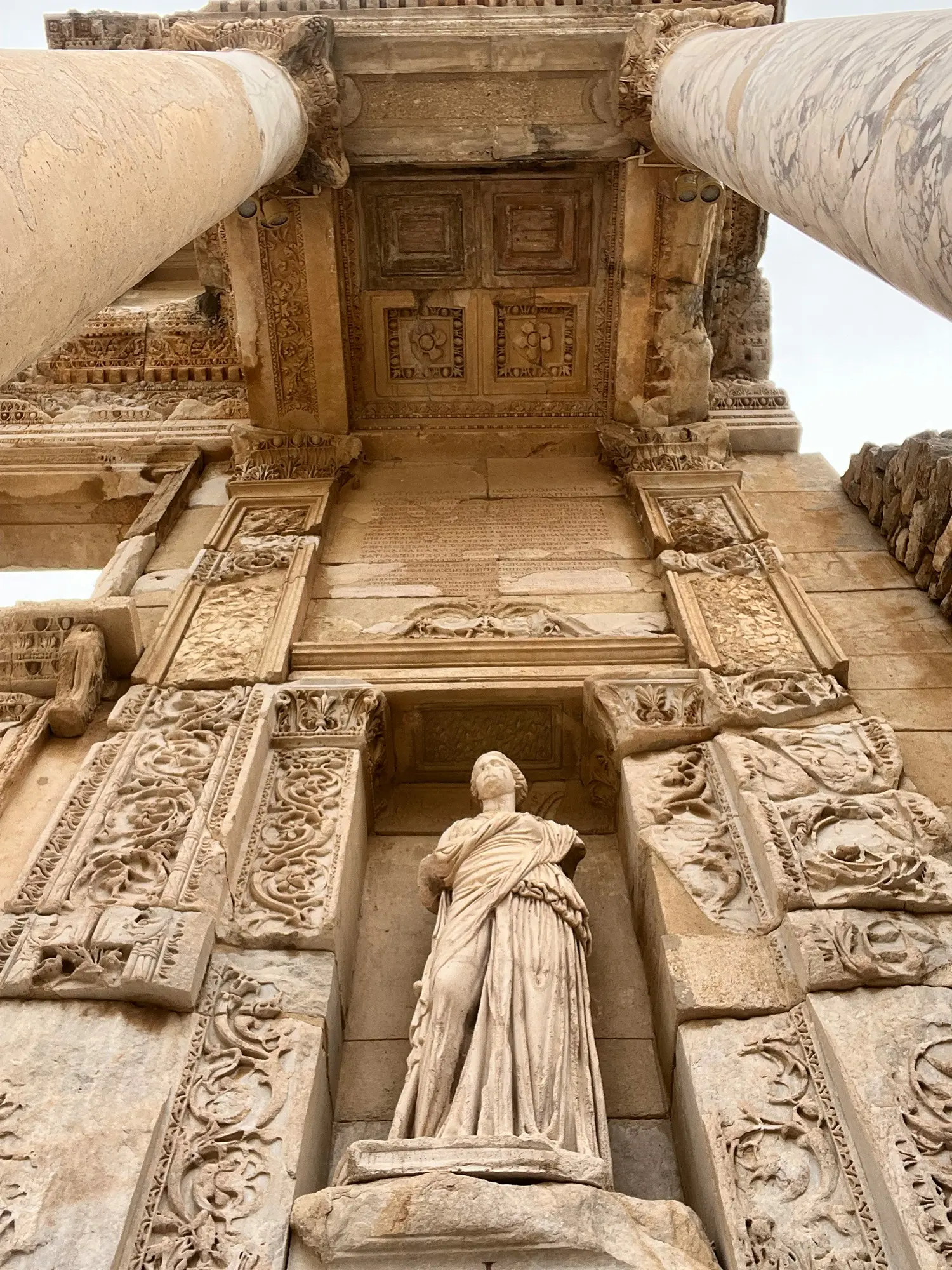
Architectural Design for Preservation
The library’s design included a single reading room lined with niches to house scrolls. These niches were ingeniously crafted to protect delicate scrolls from the elements, including moisture and heat, which could deteriorate the materials. This design exemplifies the Roman commitment to both functionality and elegance in public architecture.
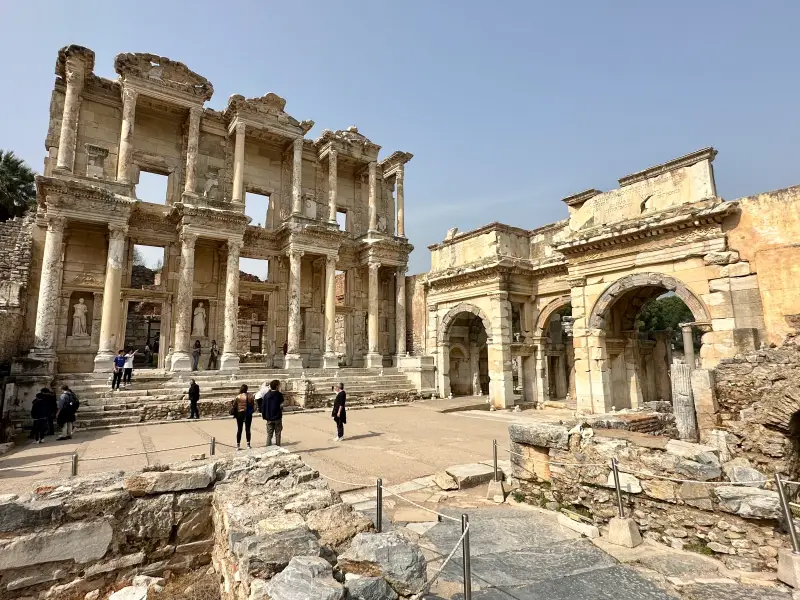
Architectural Grandeur of the Facade
The two-story facade of the Library of Celsus remains a masterpiece of ancient architecture, celebrated for its Corinthian columns and intricate reliefs. Each level of the facade features beautifully carved stone details, with columns that draw the eye upward, giving a sense of both grandeur and intellectual aspiration.
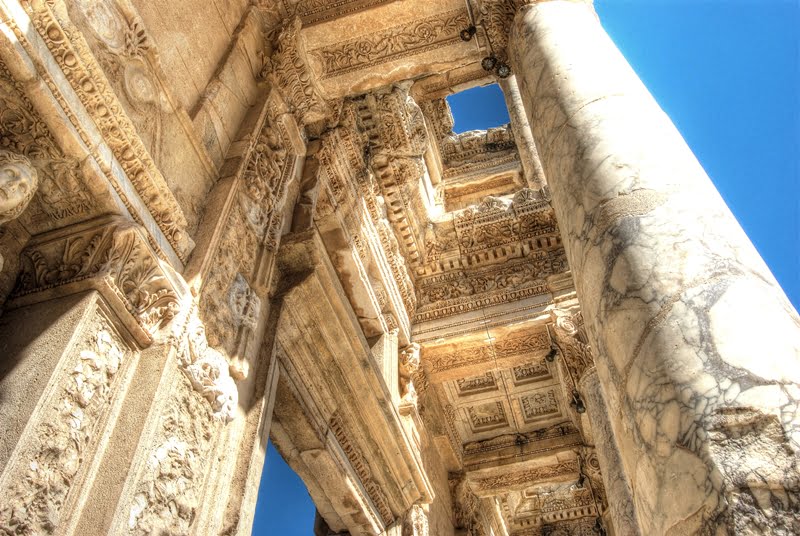
The Four Virtues
Prominently displayed within the facade are statues symbolizing four key virtues:
- Wisdom (Sophia)
- Knowledge (Episteme)
- Intelligence (Ennoia)
- Valor (Arete)
These statues reflect the ideals upheld by the intellectual community of Ephesus, with each virtue representing the qualities that were cherished in a center of learning and governance. These carvings also helped solidify the library’s status as a beacon of enlightenment and cultural wealth.
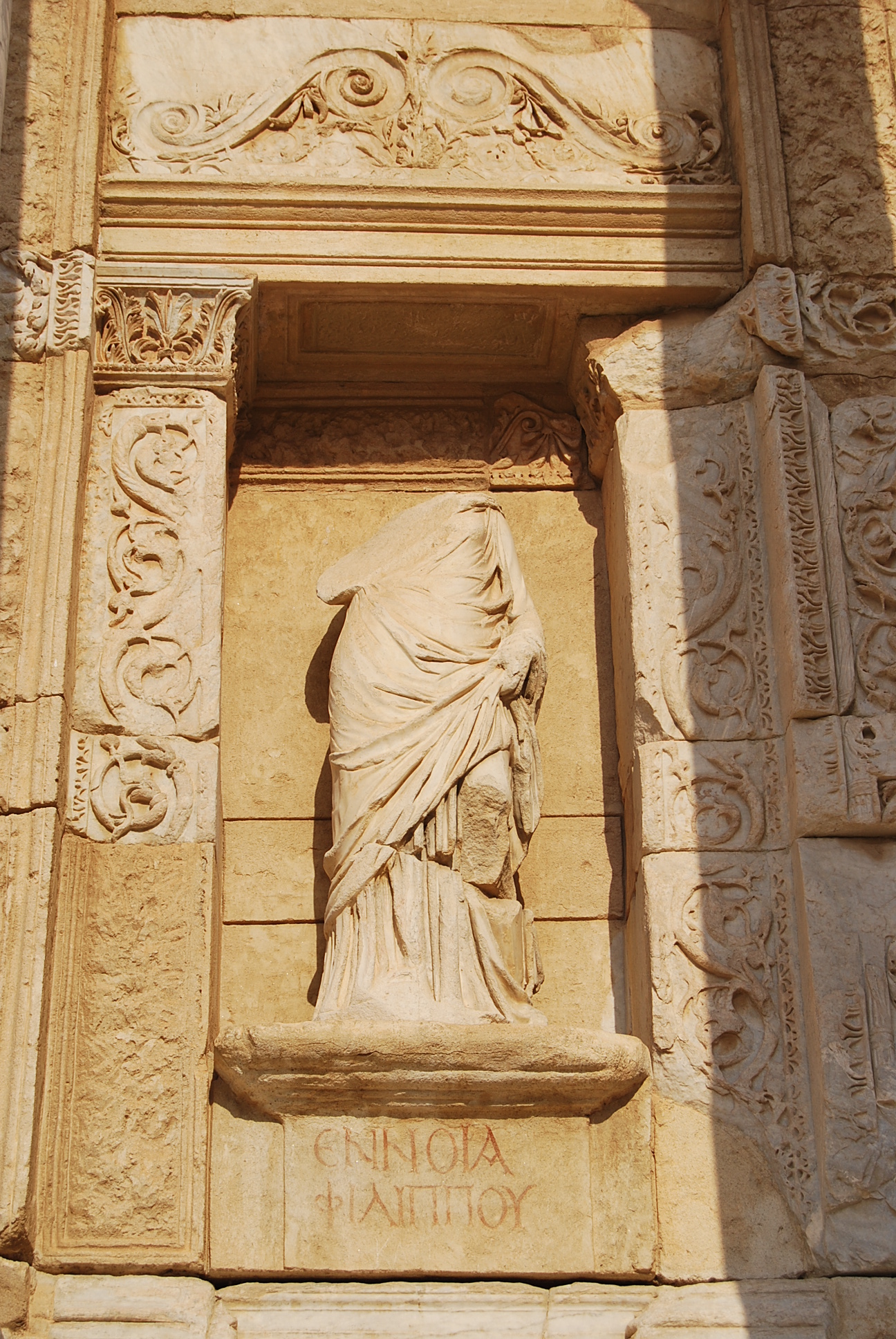
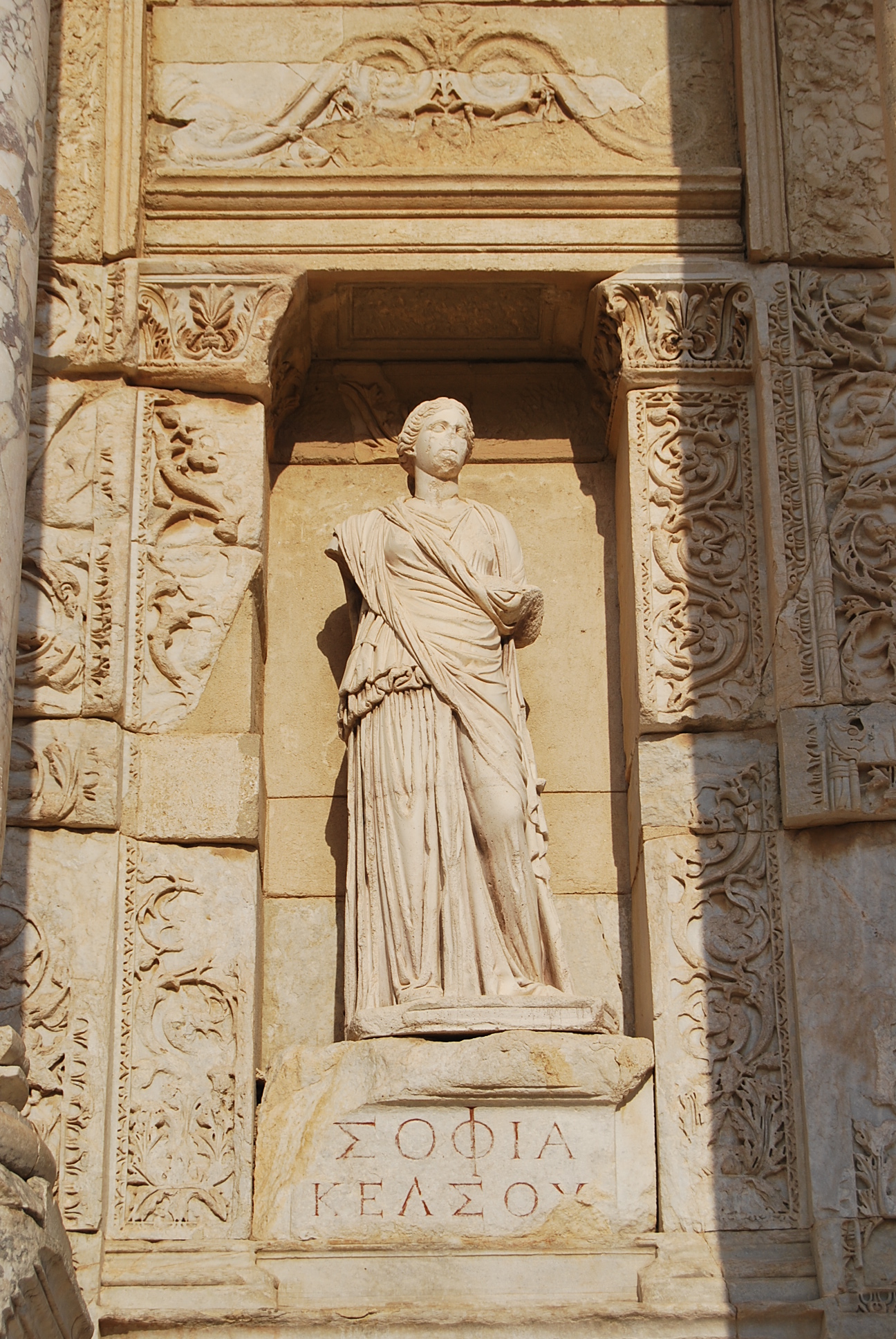
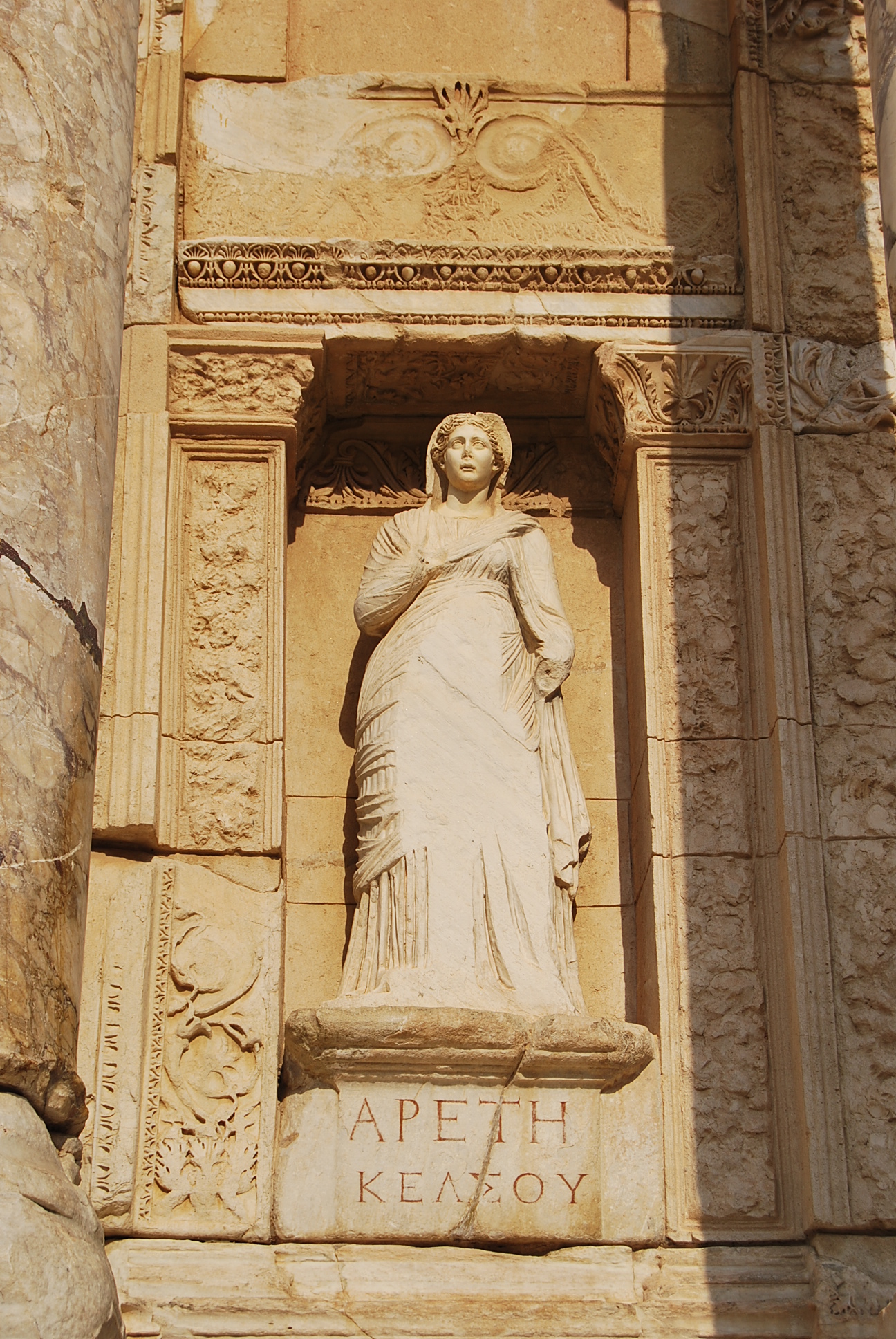
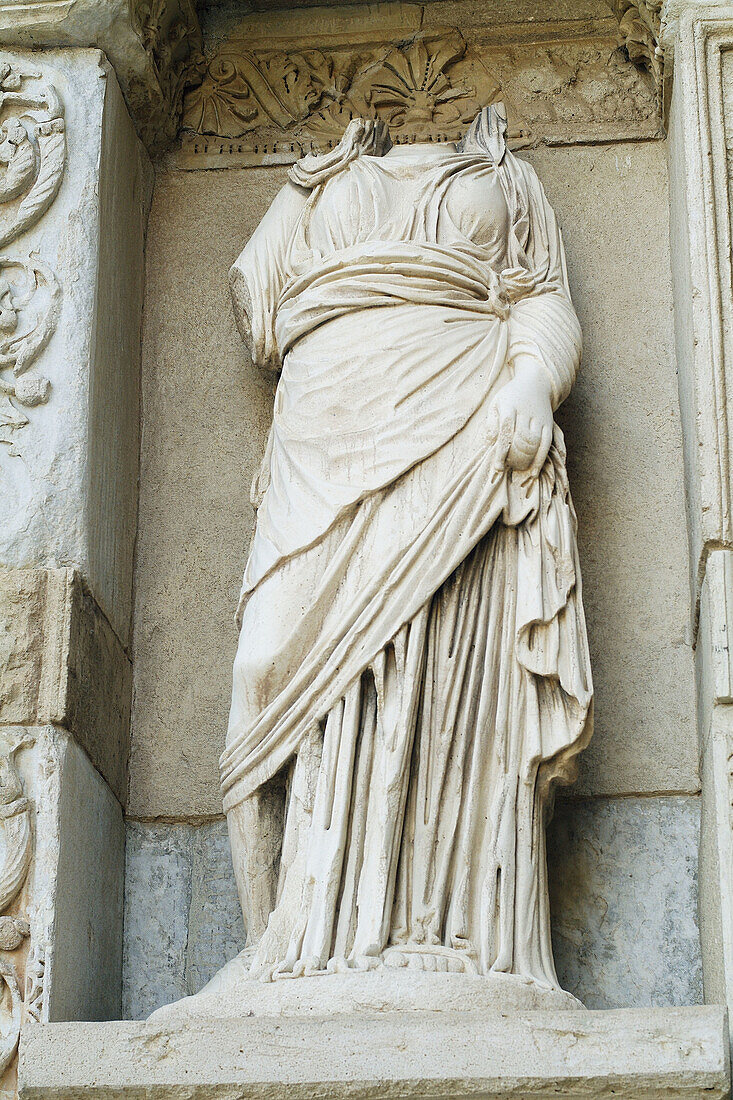
Destruction and Restoration
In 262 AD, a powerful earthquake struck Ephesus, devastating the library. The main hall and much of the structure were destroyed, leaving only portions of the facade intact. Over time, as Ephesus evolved under Byzantine rule, the library was repurposed and further altered.

Restoration Efforts in the 20th Century
In the 1970s, an extensive restoration project was undertaken to reconstruct the library’s facade, allowing this marvel to rise again as a testament to ancient craftsmanship and endurance. The restoration gave the structure a new life, preserving its historical significance and architectural beauty for future generations.
The Legacy of the Library of Celsus
Today, the Library of Celsus stands as one of the most photographed ruins in Ephesus, attracting countless visitors who marvel at its beauty and historical legacy. The surviving facade is an enduring reminder of Ephesus’s golden age and a testament to a society that celebrated knowledge, culture, and architectural innovation.
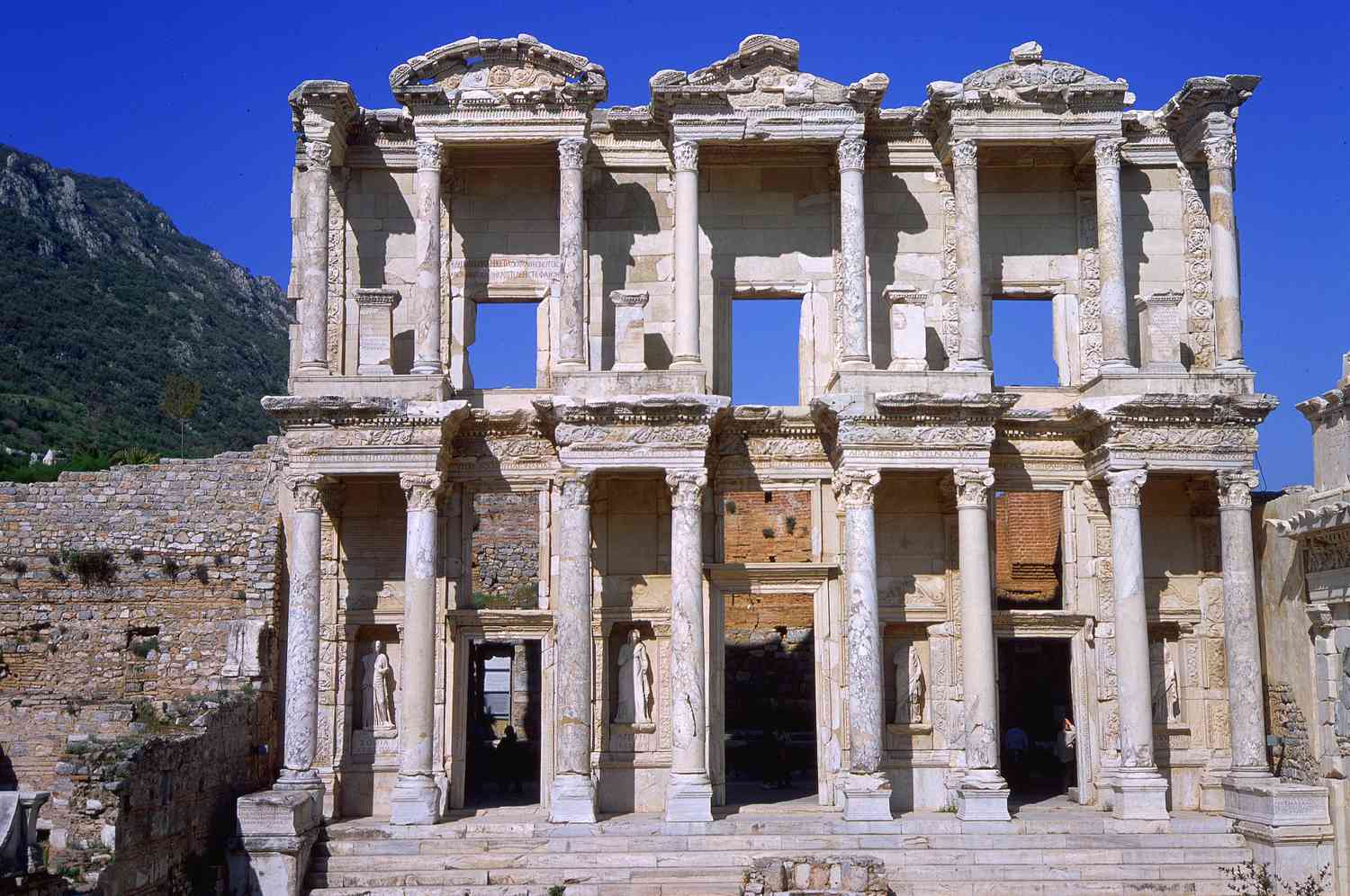
Conclusion: A Glimpse into a Golden Age
This cherished ruin offers a unique insight into ancient Roman ideals of knowledge and civic pride. The Library of Celsus not only reflects the grandeur of Roman engineering but also symbolizes the timeless importance of learning and cultural heritage. Standing proudly amidst the ruins, it reminds us of a civilization that valued wisdom and knowledge, inspiring awe and admiration across centuries.

